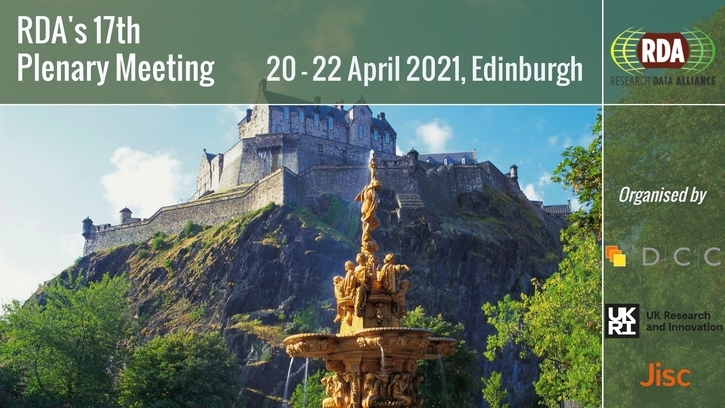
Online, 20-22 April 2021. The Digital Curation Centre in collaboration with Jisc and STFC-UKRI will be hosting the RDA 17th Plenary meeting on 20-22 April 2021. Despite the welcome news regarding vaccination programmes being rolled out around the world, the uncertainty around in-person events is still unfortunately ongoing. Therefore, RDA and the Plenary 17 Organisers have decided to shift Plenary 17 to a fully virtual event.
One of the major strengths of RDA is the global reach of the network. Members come from 145 different countries and plenary meetings rotate around the continents. This diversity of collaboration is required to address global challenges and broker solutions that work for a manifold of different contexts. Richer outputs and standards occur as a result.
The RDA 17th Plenary Meeting in Edinburgh will focus on the themes of global challenges, global mechanisms for data reuse, sustainable solutions with benefits for all, and global cooperation to realise these ends.
- How do you ensure global participation in the creation, relevance and use of mechanisms (technical and social) for data interchange?
- How can technology lower barriers to uptake – and when might it create barriers?
- What means can we create to overcome non-technical barriers to uptake, be they formal (such as legislation and workflows) or informal, behavioural ones?
- How do RDA values encourage diversity and safeguard the interests of all, rather than favouring privileged groups?
- How can global fora speed up research into crises such as COVID-19, climate change and biodiversity?
The plenary will highlight several research use cases around global collaboration to address grand challenges and ensure societal impact of data reuse. Click here for the programme structure, and respond here to the call for co-located events.